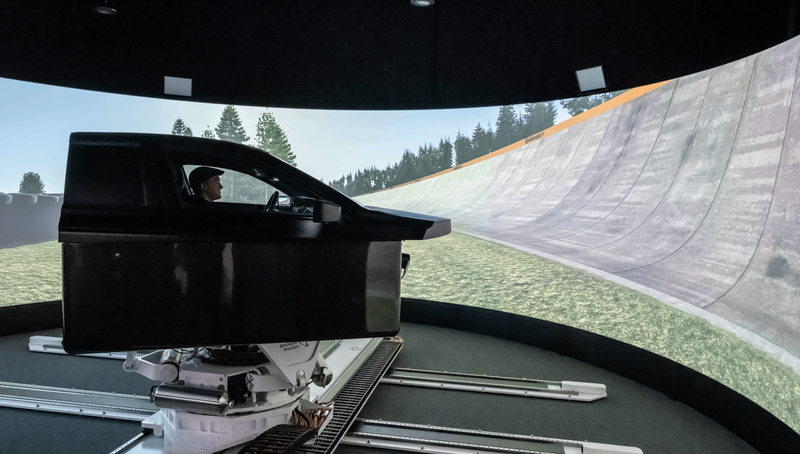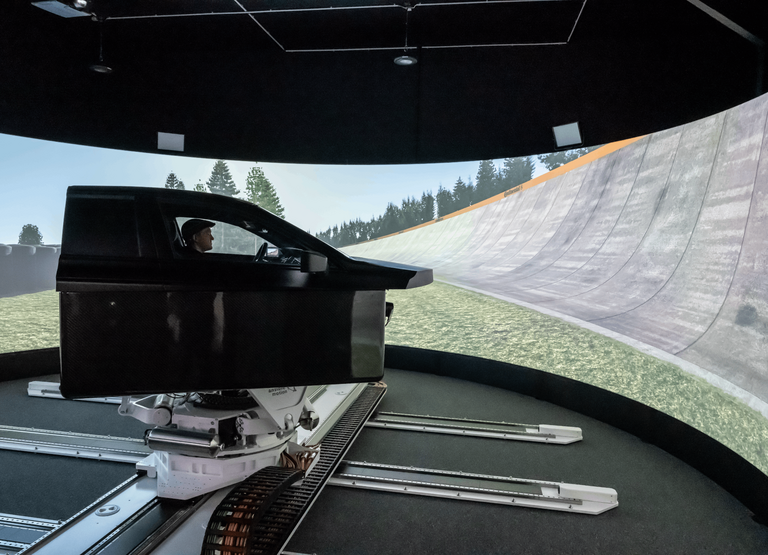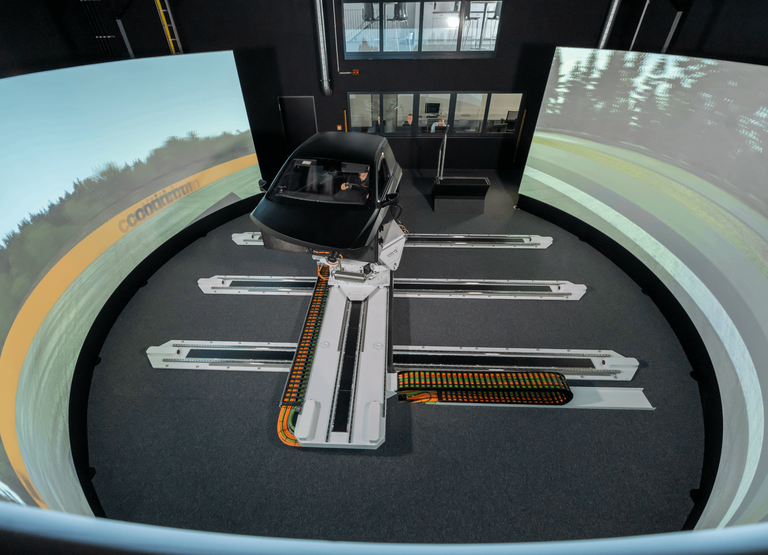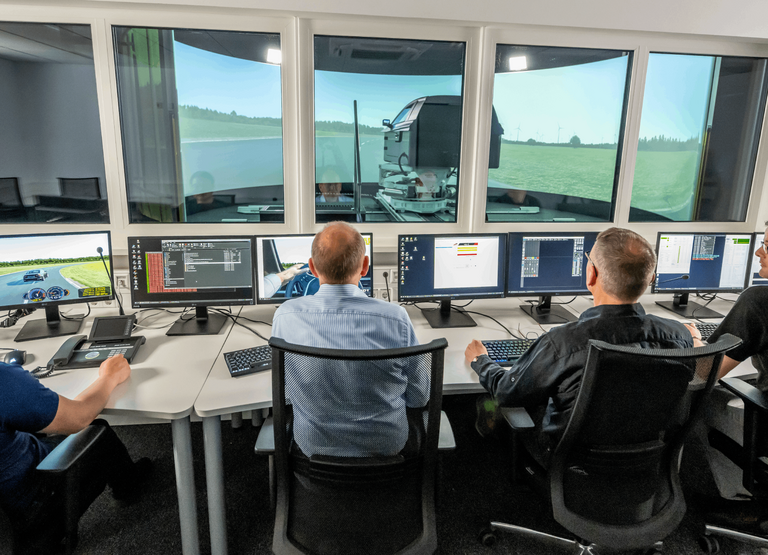Successful Trial Phase: Continental Tests Tires for Customers in Driving Simulator As From Now On
- Tire tests at Continental will now also be conducted virtually, for electric, hybrid and combustion-engine vehicles
- Tests in driving simulator save raw materials and shorten development times
- Innovative technology supports ambitious sustainability goals of tire manufacturer
Hanover, Germany, November 30, 2023. Continental has put its new driving simulator for tires into operation. It will be used from now on for new and further tire developments, especially in the original equipment business. An intensive test phase of around twelve months preceded the operational phase. Virtual tire tests will save raw materials and shorten development times. The high-tech system is known as a driver-in-the-loop simulator (DIL), which calculates the exact driving dynamics parameters for the tires and the respective test vehicle. Thanks to its high maneuverability, the simulator can provide Continental’s test drivers with subjective driving impressions that are comparable to those from tire tests on a real test track.
“Virtual development methods enable us to offer solutions even more efficiently and more precisely tailored to the needs and requirements of our customers. Virtual test kilometers also play a major part in conserving valuable resources,” explains Bernd Korte, Head of Passenger Tire Development for Continental’s original equipment business. “With our new driving simulator, we can shorten development times and optimize the use of resources in production and logistics.”
This is how the virtual tests work: The simulator calculates the exact driving dynamics parameters for the tires and the corresponding test vehicle. Continental loads the relevant tire model for the customer’s specific vehicle model into the simulator. The tire model contains precise information on the tire design, tread, and rubber compound. The test driver thus drives a dedicated tire model for a specific vehicle model variant, as was previously the case on the physical test track.
Tires for all vehicle and drive variants, for passenger cars and commercial vehicles, for electric, hybrid and combustion-engine vehicles can be evaluated in the simulator. The crucial advantage is that the tire parameters can be adjusted digitally at any time. This means that test drives can be repeated at short intervals and subjective drive impressions can be compared directly with each other. Thanks to its extensive motion platform (four meters long, five meters wide) that features a maximum acceleration of twelve meters per second, the test drivers experience all six degrees of freedom of the vehicle dynamics. Just like in a real vehicle on a physical test track. These include the longitudinal and lateral movements, the stroke movement, the yaw, pitch and roll of a vehicle. Test drivers are trained to incorporate these subjective driving impressions into the development process. This experience is essential for achieving the exact tire set-up required by the vehicle manufacturers for the particular vehicle model.
“With our driving simulator, we evaluate and optimize a tire before we physically build it for the first time,” explains Julian Kroeber, who is responsible for the tire simulator at Continental. “This allows us to further optimize our development process. It also saves a lot of time for our customers.”
New materials that are being used in a tire for the first time can also be tested extensively in the new simulator. Testing is particularly important, because every time an approved material in a tire is replaced by a new one, the new material’s properties and interactions with other materials must be thoroughly investigated. Continental thus ensures that its tires later meet the highest performance criteria for safety-related properties as well as for other important aspects such as rolling resistance and noise development.
Every test cycle that is completed in the driving simulator instead of on real roads means fewer test tires that need to be produced. The investment in this new testing technology thus also adds to Continental’s extensive sustainability activities. The company’s goal is to become the most progressive tire manufacturer in being environmentally and socially responsible. To this end, Continental is investing significantly in innovative technologies and sustainable products and services along its entire value chain.

Henry Schniewind
Head of External Communications
Continental Tires

Katharina Bühmann
Manager Communications Technology, Innovation & Original Equipment
Continental Tires




